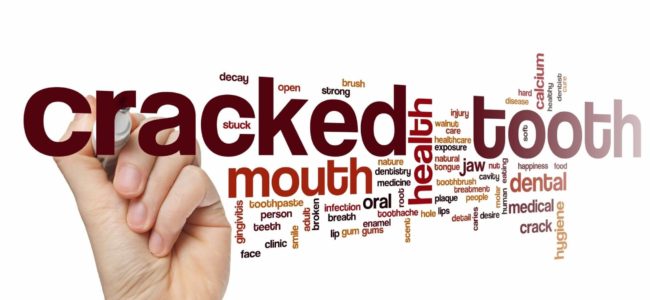What Causes Cracked Tooth Syndrome?
Cracked tooth syndrome is notorious in the dental community because it’s one of the most difficult dental problems to diagnose. According to this article published by the US National Library of Medicine, “The diagnosis of CTS (cracked tooth syndrome) is often problematic and has been known to challenge even the most experienced dental operators, accountable largely by the fact that the associated symptoms tend to be very variable and at times bizarre.” The article goes on to say that identification can be difficult because the pain can mirror other dental and health issues like sinusitis, temporomandibular joint disorders (TMJ), headaches, ear pain, and atypical orofacial pain.
Despite the fact that diagnosing CTS is time-consuming and frustrating, there are some clues that help in locating the crack and, ultimately, treating it. Therefore, reviewing your dental history with your dentist is an important first step. Some of those clues include past dental treatment, lifestyle and which tooth (or teeth) are painful and/or sensitive. This information is important because it makes the clinical exam more effective.
What Causes a Cracked Tooth?
A cracked tooth can have a number of causes – from biting down too hard on something to grinding your teeth at night. The ADA says that a tooth may crack due to a variety of factors which includes:
- Chewing on hard foods (ice or hard candies)
- Trauma to the mouth
- Teeth grinding
- Loss of tooth structure
- Large fillings or other restorations
- Age (weaker teeth)
- Extreme temperature changes
Signs of a Cracked Tooth
If you have any of these symptoms, a cracked tooth may be causing the discomfort, and it’s advised to contact your dentist immediately:
- Sharp pain when biting on a certain tooth
- Pain when grinding teeth backward or forwards
- Sharp pain when eating or drinking cold foods
- Pain when eating or drinking something sugary
- Lack of constant pain (no chronic pain)
- Infection
Prevention
So, how do you prevent CTS? Well, accidents happen, but there are a few lifestyle tweaks worth taking into consideration:
- Avoid biting down on certain foods that are hard – like popcorn kernels, for example.
- Trying not to clench your teeth.
- Wear a mouthguard to protect teeth while playing sports or sleeping (if you grind or clench your jaw at night).
If you can relate to the causes or signs of a cracked tooth listed above, then it’s important to contact your dentist for an exam. To save the tooth, your dentist will want to see and treat the crack as soon as possible. Plus, they can help relieve the pain and discomfort – getting you back to a normal way of life!
